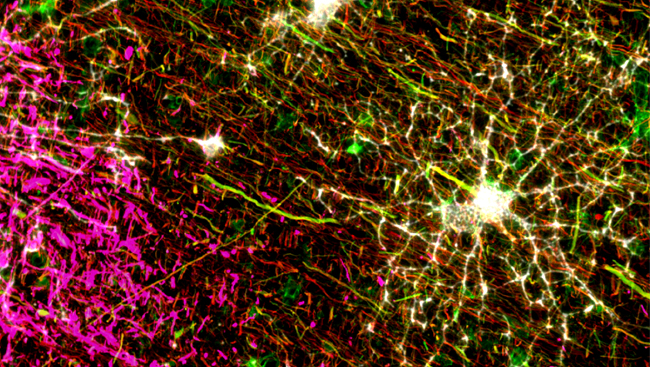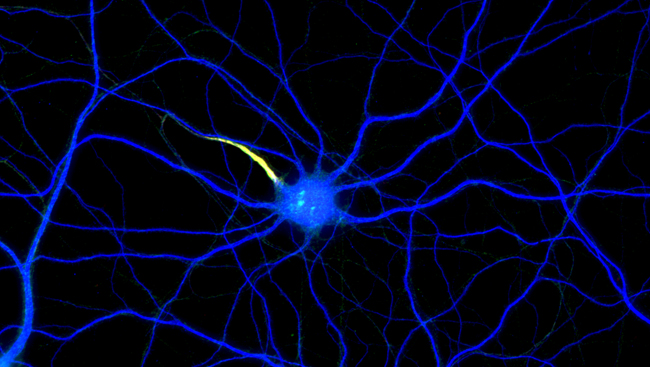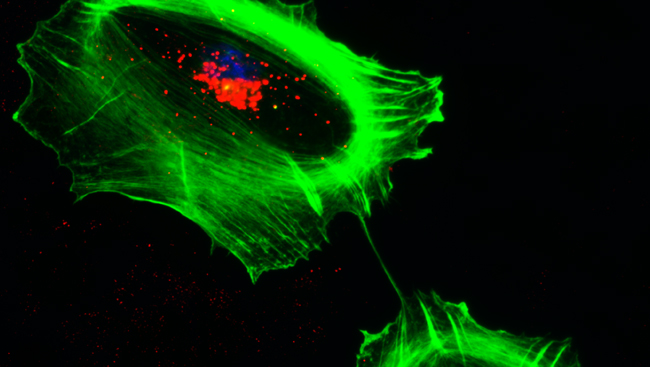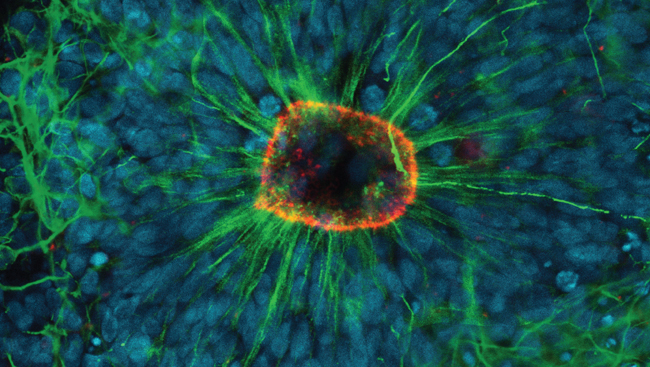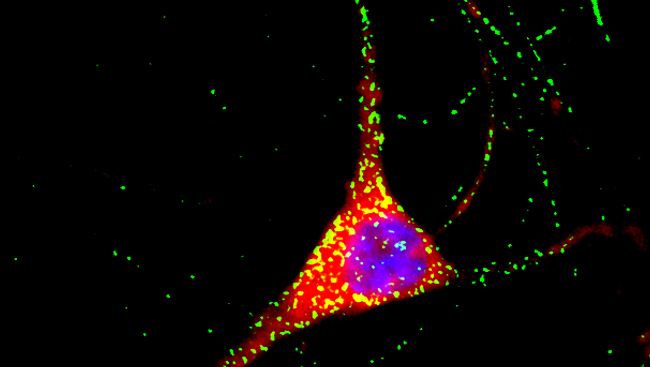Stem Cells and Reprogramming Methods for Neuroscience: An SfN Training Series
Welcome to SfN’s Training Series: Stem Cells and Reprogramming Methods for Neuroscience.
These resources will help advance your understanding of how to generate neural subtypes using stem cells or other reprogramming tools to solve a question in neuroscience.
Advances in stem cell biology and cellular reprogramming technology allow scientists to create research models that can improve their understanding of the structure and function of human brains and brain diseases. Stem cells and reprogramming technologies make it possible to generate two- and three-dimensional tissues in culture dishes that are derived from human cells and composed of neural subtypes. These tissues capture the genetic diversity of the human population, share molecular and functional features with their in vivo counterparts, and can be used to study disease processes, to assess gene function, or to do investigative, exploratory biology research.
Training Modules
The series’ five training modules were organized in partnership with Marius Wernig (Stanford University), Kristin Baldwin (Scripps Research Institute), and Lorenz Studer (Memorial Sloan Kettering Cancer Center, and consist of short lectures and demonstration videos; curated sets of protocols, datasets, and other experimental resources; and recommended reading lists.
The training modules provide:
- An introduction to and historical overview of the field of stem cell biology and reprogramming technologies;
- A foundational understanding of the biological concepts and methodologies for generating, characterizing, validating, maintaining, and assaying neurons, glia, mixed cultures, and neural organoids derived from stem cells;
- Information on key techniques, procedures, and trouble-shooting tips for generating and functionally screening neurons, glia, mixed cultures, and neural organoids derived from stem cells; and
- An understanding of the promise of stem cell models to model human conditions and disease phenotypes.
The training modules are aimed at neuroscientists who:
- Are considering using human cell models in the future and want to learn more about the potential and current limitations of the field.
- May have started using stem cell biology and reprogramming methods and want to increase their familiarity with these technologies, with their applications, and how to best apply these methods.
Virtual Conference
The training modules complement a virtual conference, Next Generation Human Disease Models in Neuroscience, organized in partnership with Marius Wernig and Lorenz Studer. The conference showcases cutting-edge research from leading labs worldwide that are using human cell models to investigate new biological questions and broaden our understanding of human diseases ranging from neurodevelopment to neurodegeneration.

